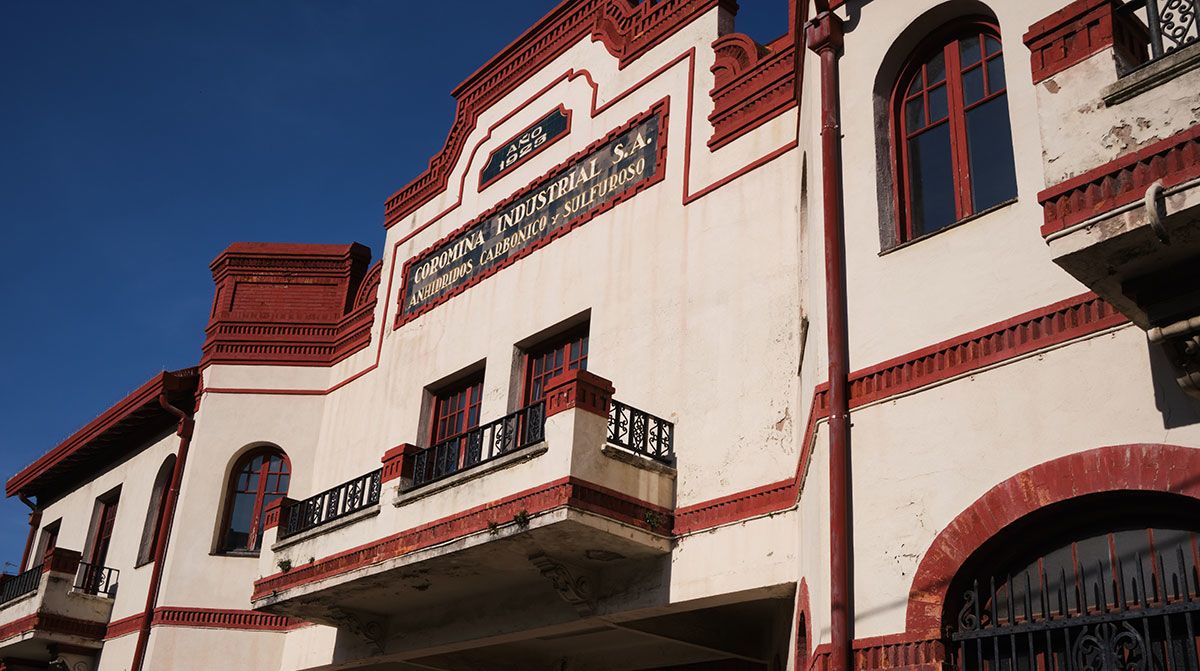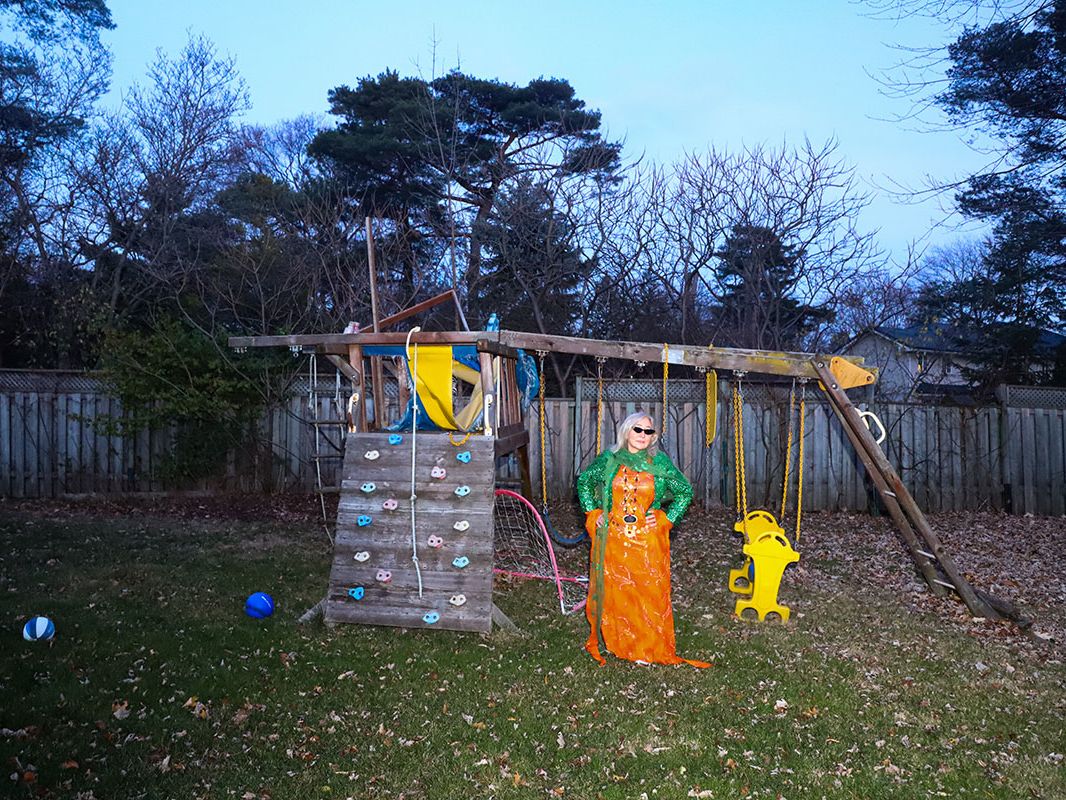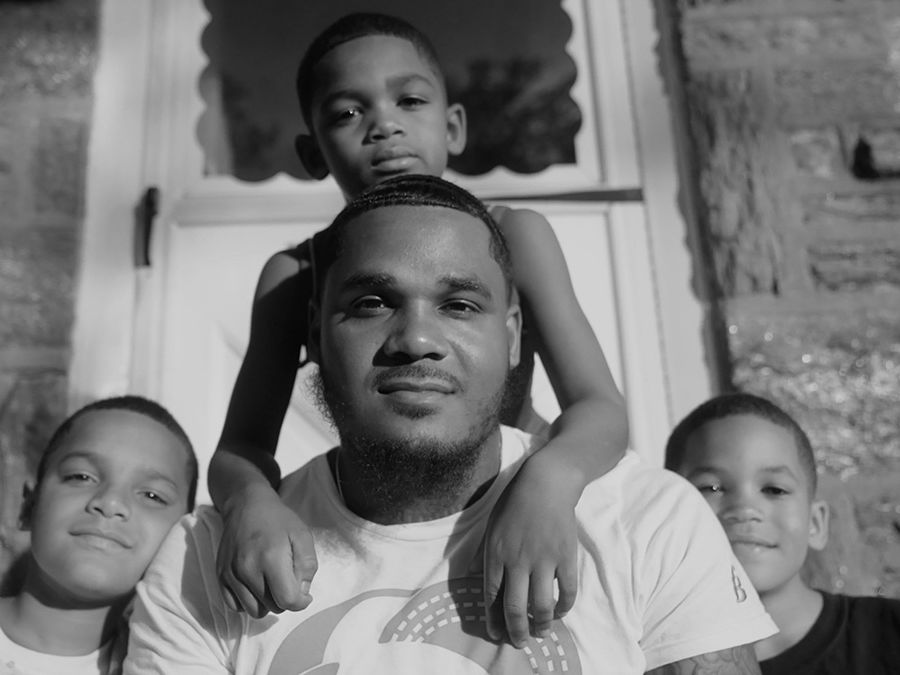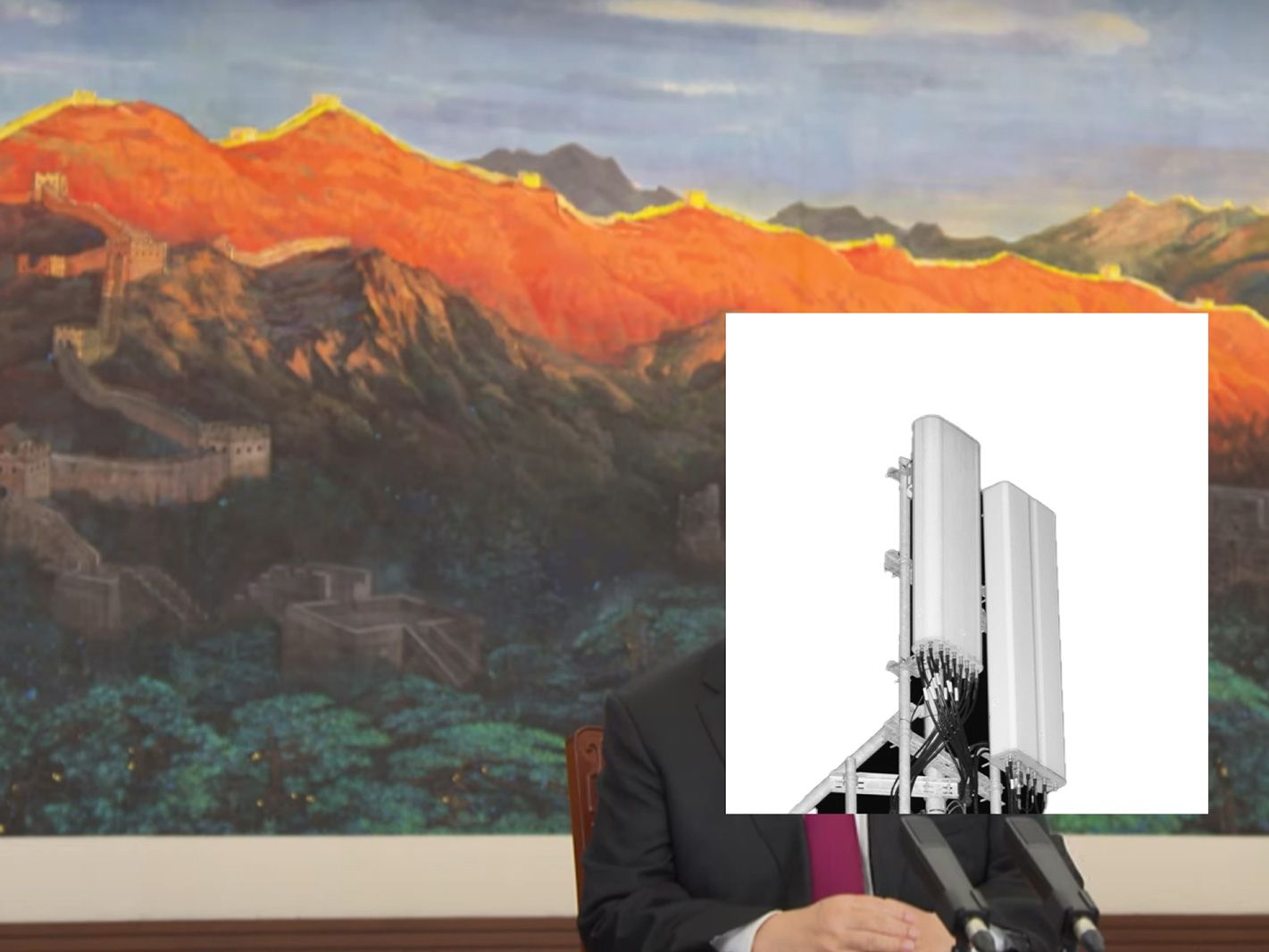
London College of Communication connects with communities in Bilbao

- Written byChloe Murphy
- Published date 05 July 2022

Living within an increasingly globalised society enables us to explore the experiences of diverse communities in ways that enhance our understanding and inspire our creativity. At London College of Communication (LCC), we develop international networks in ways that support our students to become forward-thinking graduates at the very forefront of their disciplines.
Earlier this year, academics, current postgraduate students and recent graduates from LCC’s Photography programme were invited to take part in a collaboration with University of the Basque Country (UPV/EHU) as part of UAL’s Creative Cities initiative, which emphasises the importance of creative leadership at the core of long-term regeneration, entrepreneurship and public engagement.
The trip was designed to enhance the University’s existing connection with UAL’s inaugural Creative City of Bilbao. Since 2019, the partnership has provided a unique opportunity for expertise-sharing by providing opportunities to explore one of Europe’s most ambitious urban regeneration projects: the island of Zorrotzaurre, a creative district of residential, commercial, business and civic potential.
Over the course of 3 days, LCC representatives including Dr Karen Shepherdson, Jess Crombie and Max Houghton participated in a postgraduate springboard study which considered the ways in which existing communities and community memory can contribute to contemporary storytelling and creative practices through the use of ethical approaches.
Key stakeholders such as island residents, newly established arts organisations such as Lan Festival, Elektrat and ZAWP, and contemporary artist MAWA provided vital insights into the contemporary challenges faced by Zorrotzaurre as it rapidly makes its transition from an industrial tradition to an increasingly complex, multifaceted space.

"A place where the changes of contemporary cities can be perceived in real time"
Professor Natxo Rodriguez Arkaute from University of the Basque Country explained that situating the trip within a rich, complex geographical area generated vital conversations to inspire creative practice:
"Working in the context of the Erribera (known as Zorrotzaurre Island since 2018) gives us a magnificent opportunity to work with young trainee artists and researchers in a unique place at the heart of the town - a place where the changes of contemporary cities can be perceived in real time and where we can listen to the stories, sensations and real experiences of its inhabitants."
Dr Karen Shepherdson, Programme Director of Photography at LCC, highlighted the importance of the trip in drawing parallels between contemporary shifts in the local College community and its potential for driving future international collaborations.
“This is the beginning of meaningful, value-based partnership between UAL and University of the Basque Country,” she explained.
“Workshops and events on the Bilbao peninsula of Zorrotzaurre inevitably encourage a comparative analysis with changes occurring back in London's Elephant and Castle. It’s envisaged that the work being made as a response to these immersive workshops will contribute to a Festival of Change at LCC in 2023."
We chatted to 2 of the MA Photojournalism and Documentary Photography graduates involved in the trip, Alexis Andreou and Rebeca Binda, to discuss key highlights of the experience, the ways in which it enhanced their creative perspectives, and why they’d recommend participation in international opportunities to current students at LCC.

Tell us about your creative practice.
Alexis: My photography is bound by an inherently documentary and photojournalistic nature. I deal with humanitarian topics of borders and post-conflict concern – mainly looking at the post-conflict landscape of Cyprus and its sociopolitical effect on the bi-communal cohabitation of its 2 majority communities, Greek-Cypriots and Turkish-Cypriots.
My work looks at demonstrating the ways in which nationalistic tendencies that were fuelled by political interests have influenced the perception of communities’ views of one another.
Rebeca: My photojournalism and research work centres on investigating issues related to environmental and social justice, legacies of colonisation, ecocide and women’s stories. My practice has been focused on long-form narrative reportages and personal projects as a result of believing that a closer and genuine connection with the communities I document are an essential pre-requisite for communicating their essence, history and values.
Through the act of listening and performing in-depth research of local elements, archival imagery, poetry and cartography, I centre and elevate the human stories behind serious environmental degradations. Experimenting with alternative processing enables me to bring a materiality to my interventions, thus revealing the deterioration suffered by landscapes that would at first glance seem pristine and undamaged.
A central element to my practice is emphasising the resilience built by communities on the frontline of the climate crisis. In reclaiming ravaged shared spaces, they demonstrate the importance of their ties on fighting an economic culture that places little to no importance on the wellbeing of citizens. For me, storytelling and collaboration are key tools to document and amplify such movements mobilised by traditional communities.

How did you find out about the trip to Bilbao, and why did you decide to get involved?
Alexis: I found out about the trip from an email sent by Karen Shepherdson, the Programme Director of Photography at LCC, which expressed how department was looking for current students and graduates to join the early stages of the Bilbao collaboration.
I decided to get involved as the sociopolitical standing of Bilbao and the island of Zorrotzaurre were of great interest to me. I wanted to visit and investigate, as well as see what the locals would communicate to us, and take some photographs that could inspire me while inspiring others.
I also speak Spanish which was an advantage. Learning the language has provided me with a profound interest in Spanish history and the country’s affairs, so any chance to learn more - especially in a creative spirit - was an opportunity worth grasping.
Rebeca: I first heard about the trip through an email sent out by Agnes Moricz via Moodle. As soon as I read the word ‘Bilbao’ and the fact that the opportunity was open ideally to Spanish speakers, I thought I had a chance to be included and decided to write to Karen Shepherdson, who was dealing with the applications.
I have to admit that I’m very often super insecure with applications as I rarely believe that I’ll be picked (and there are studies which have revealed how women are much less likely to apply to opportunities than men). Either way, I had a positive response from Karen and eventually joined a Teams call with other alumni and students to hear about the opportunity. When I heard that we would be working closely with the local community on a theme related to mining I thought: “Oh! I really want to be part of this!” as these are themes that are completely connected to the Major Project I started developing during my MA. I thought that expanding my research to areas in Europe would really enrich my practice and investigation.
The fact that Max Houghton and Jess Crombie were involved also made me super excited as I had had lectures with both – Max as my MA course leader, and Jess during the Terms of Engagement Socially Engaged Symposium held by Becky Warnock and Kate Watson, who I greatly admire as women who are leading learnings in an academic environment, especially the insights I acquired through their lectures around decolonisation, ethics and visual imagery.

What kinds of activities did you take part in?
Alexis: First, we all met with the faculty of the university, along with the other MA students that were taking part in the collaboration. After Max and Jess gave their lectures on archival and documentary images, we were introduced to a brief history of Zorrotzaurre and its placement in Bilbao.
We had a walking tour of the island followed by a boat trip of Bilbao and the surrounding towns leading towards the Atlantic Ocean, which was guided by a group of local architects. We spoke to the locals in Zorrotzaurre, including the board members of the Neighbourhood Association which deals with local matters of inclusivity and regeneration in the area, as well as liaising with the Bilbao councils in order to get some assistance in upgrading the area. We also had a film screening of work made as part of a local festival which dealt with the industrial explosion in 20th-century Bilbao, the collapse that came after, and the related political landscape.
Aside from that, we spent time gathering our ideas and research, documenting the area and following more workshops and lectures hosted by the University and its academics. Needless to say, there was a lot of information to take in in 3 days.

Rebeca: We participated in all sorts of activities including lectures, walks, screenings and a boat trip. These made our experience even more engaging by providing us with spaces and moments of interaction with the MA students from University of the Basque country and the community from the Zorrotzaure island.
On the first day, we met MA students from different courses, as well as tutors Natxo Rodríguez and Arantza Pereda. Together, at the campus of Leioa, we took part in lectures with LCC’s Karen Shepherdson (who spoke about the relationship between art, social progress and regeneration, and exploring the idea of communities as cultural bodies) and Jess Crombie (who spoke about the importance of challenging our biases through ethics in storytelling).
Later in the day, Professor Arantza led us on a walk around Zorrotzaure, which was our first moment of contact with the space and architecture around it. We then joined a screening of documentaries that would be presented at the LAN Festival. The session was incredibly insightful in helping us to better understand the socio-political situation in the island, and also for our creative development too. The activities ended late at night, meaning we had a chill evening of rest.
For the second day, we joined local tutors and students at the central campus of the University, where we had a thoughtful and sensitive lecture from Max Houghton about artists who activate archives to represent memories whilst exploring their reparative nature. We then had a lecture with artists Enrike – Olhane who spoke about the importance of sound, popular music and ‘paisaje sonora’ (sound landscape). This topic was incredibly interesting and helped me realise how the industrial world brings a lot of noises and sounds that we’re so accustomed to, and how sound is an important element for photographers who usually rely on visual imagery to convey their ideas and emotions.
We had a couple of free hours on the schedule, so Alexis and I decided to visit the Guggenheim Museum Bilbao, which is itself a masterpiece of art situated by the river. The work held by the museum is definitely worth a visit, but the architecture of the museum itself will leave anyone in awe. We then had a pleasant boat trip along the estuary of Bilbao – my favourite part of the experience – which was conducted by Benat, an architect living in Zorrotzaure who is also a tour guide. Benat gave us all the insights about the island, its industrial history and the changes it went through during its years exporting iron ore to the rest of Europe.
After the boat trip, we went on a city trip around the streets of Zorrotzaure with Cristina Pascual. This was another of my favourite parts of the experience as we were able to engage with the local community who remained living in the island despite all the social challenges catalysed by the decline of Bilbao’s industrial era. We visited a space which offers refuge for local families while strengthening their community ties through activities such as music, gardening, cooking, dancing and cycling, before discovering a bit more of Basque cuisine.
The following day, we started with a talk by Juan Pablo Ordúñez (MawatreS), a prominent Basque artist who has been developing work based on interventions that aim to engage with local communities. We then headed back to London having learnt a lot about the local culture while establishing a close, genuine relationship with the students at University of the Basque Country.

What were your highlights of the experience?
Alexis: Definitely the outstanding friendliness of the University faculty and the locals in Bilbao. It was very pleasant to work with them to say the least, even if only for such a short span of time.
Apart from that, taking the boat trip around the area and familiarising ourselves with the history from a creative point of view - with a profound sociopolitical focus on the placement and unstable nature of the island of Zorrotzaurre - was an outstanding moment of the trip. It’s a remarkable area, and being part of this collaboration and seeing the ideas that are being manifested was really an honour.
How do you feel the experience has influenced your work or your overall approach as a creative practitioner?
Alexis: I believe the experience has positively influenced and stimulated my practice in the sense that I had the opportunity to work on something new which doesn’t deal with the conventional attributes of post-conflict matters that can usually be found in my work. This has led me to get inspired by the sociopolitical standing of Bilbao and Zorrotzaurre, and has also led the way for many future ideas and collaborations around this.
The opportunity to be part of an inter-institutional and international collaboration such as this one will most definitely serve in taking my practice to the next level.

Why would you encourage other LCC students and graduates to participate in other international opportunities?
Alexis: I would definitely encourage students to take part because international opportunities will stimulate your creative endeavours in ways that go beyond London.
LCC is a wonderful institution, and any opportunity for collaborating at an international level should be pursued as it will help to get your practice noticed in different nations and communities.
Related links:
- Explore further projects from Alexis Andreou and Rebeca Binda.
- Find out more about the International Development Office at London College of Communication.
- Learn more about our Media School.



